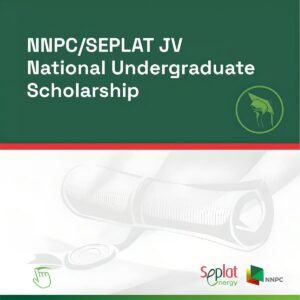JAMB’s New Admissions Guidelines: Key Updates from the 2024 Policy Meeting

The Joint Admissions and Matriculation Board (JAMB) has officially set the stage for the 2024/2025 academic session with significant updates announced during the recent policy meeting held on July 18, 2024. This meeting is a crucial event for stakeholders in Nigeria’s education sector, as it outlines the admission process for universities, polytechnics, and colleges of education across the nation.
Key Highlights from the Policy Meeting
- Minimum Cut-Off Marks Established: JAMB has set the minimum cut-off marks for admissions as follows:
- Universities: 140
- Polytechnics: 100
- Colleges of Education: 100 These benchmarks ensure that candidates meet a standardized level of academic performance before being considered for admission into their desired institutions[5].
- Strict Compliance with CAPS: JAMB reiterated that all admissions must be conducted through the Central Admissions Processing System (CAPS). Any admissions processed outside this platform will be deemed illegal. This directive aims to enhance transparency and maintain the integrity of the admission process, ensuring that only qualified candidates are admitted[4][5].
- Age Requirement Changes: Starting from the 2025 admission cycle, JAMB will only admit candidates who are at least 18 years old. This change marks a significant shift from previous policies that allowed younger candidates to gain admission, thereby reinforcing the importance of maturity in the academic environment[4].
- Integration of O-Level Data: In an effort to streamline the admission process, JAMB will now allow admission officers to download candidates’ O-Level data directly from CAPS. This integration eliminates the need for students to submit their results separately, reducing administrative burdens and potential errors during the admission screening process[4].
- Post-UTME Fees Capped: To ensure accessibility for all candidates, JAMB has capped the maximum fee for Post-UTME screening exercises at ₦2,000. This regulation aims to prevent exploitation and ensure that financial constraints do not hinder candidates from pursuing higher education[4].
- Deadline for Data Corrections: Candidates wishing to correct any personal or academic data must do so by October 31, 2024, in preparation for the 2025 JAMB registration. This deadline allows sufficient time for necessary adjustments[4].
Implications for Candidates and Institutions
These updates signal JAMB’s commitment to improving the admissions process and enhancing the overall integrity of Nigeria’s education system. Candidates are encouraged to familiarize themselves with the new guidelines and ensure compliance to avoid complications during the admission process.
Institutions are also urged to adhere strictly to the established cut-off marks and CAPS regulations. Failure to comply could result in sanctions and the invalidation of admissions.
Conclusion
As the 2024/2025 academic session approaches, the updates from JAMB’s policy meeting serve as a critical roadmap for candidates and educational institutions alike. By following the new guidelines, stakeholders can contribute to a fair and transparent admission process that upholds the standards of Nigeria’s educational system. Stay informed and prepared as you navigate this crucial phase in your academic journey!






